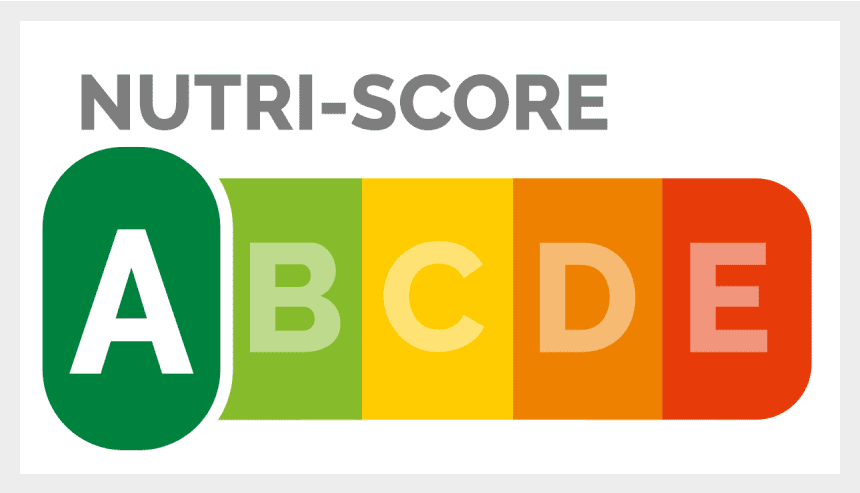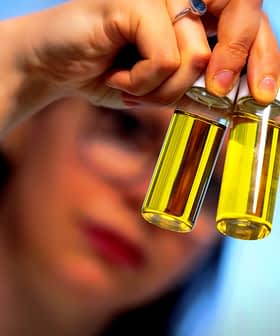Nutri-Score is the best food front-of-pack labeling (FOPL) system on the market and should be urgently adopted, according to the latest findings of the International Agency for Research on Cancer (IARC).
The agency’s report found that Nutri-Score’s scientific basis is solid, consumers appreciate it and the FOPL can help lower the risk of developing cancer and other diseases.
There is clear scientific evidence on the relevance of this labeling system and its potential public health impact at the international level.
In their paper, IARC scientists emphasized how comprehensive investigations into the food choices of different European populations have shown that those who consume products with lower Nutri-Score ratings face a higher risk of developing cancer and mortality from cancer-related issues.
Other than developing cancer the IARC also found that those who indulge in poorly-rated food consumption tend to develop circulatory, respiratory or digestive system diseases, showing an overall higher tendency to die prematurely.
See Also:Italy’s Largest PDO Cheese Consortia Unite to Oppose Nutri-Score“The reduced mortality and cancer risk related to elevated consumption of foods with favorable Nutri-Score ratings has been scientifically established, and it is critical to step up its use in Europe and beyond,” said Mathilde Touvier, the principal investigator of the IARC project and head of the nutritional epidemiology at the French National Institute of Health and Medical Research.
The IARC’s specific attention to the Nutri-Score adoption in Europe is due to the European Commission’s plan to establish a harmonized food labeling system throughout the E.U. within next year.
Nutri-Score is widely considered the front-runner and has been adopted in several countries in the 27-members bloc.
“Nutri-Score has an important role to play, not only to help consumers make informed choices about the nutritional quality of their diet but also to incentivize food manufacturers to improve the nutritional quality of their products and to help governments implement efficient strategies to prevent cancer and other nutrition-related diseases,” Touvier said.
According to the IARC findings, Nutri-Score adoption should happen as quickly as possible and should be made mandatory.
“There is clear scientific evidence on the relevance of this labeling system and its potential public health impact at the international level,” said Inge Huybrechts, one of the main investigators of the IARC research project.
“While its adoption by several European Union countries is welcome, a mandatory use of this front-of-pack nutrition label is urgently needed, to help consumers and to make a real difference,” she added.
The IARC reached its conclusions due to the inner workings of the French-born labeling system and the results of epidemic studies such as the European Prospective Investigation into Cancer and Nutrition (EPIC) study, which was conducted for many years on more than half a million volunteers.
In the report, IARC researchers emphasized how the Nutri-Score algorithm works by the terms of the FSAm-NPS score, a food and beverage-level score that takes the qualities and contents of 100 grams or 100 milliliters of food into consideration.
The algorithm considers several positive foods and nutrients – dietary fibers, proteins, fruits, vegetables, legumes and nuts – along with negative ones – sugars, saturated fats and sodium – to arrive at a color-letter rating system ranging from the healthiest “Green A” to the least healthy “Red E.”

“A higher FSAm-NPS DI (dietary index) score reflects an overall lower nutritional quality of foods consumed,” the report reads.
The researchers added that the 15-year EPIC study follow-up showed a strong connection between the cancer cases that developed among the European volunteers and their FSAm-NPS score.
“Those individuals with the highest FSAm-NPS DI scores had a higher risk of developing cancers overall, and specifically cancers of the colo-rectum and liver (especially in women), upper aerodigestive tract and stomach and lung (in men),” the researchers wrote. “For sex-specific cancers of the reproductive system, a higher FSAm-NPS DI score was associated with a higher risk of postmenopausal breast cancer and prostate cancer.”
“Nutri-Score is a promising tool that has been proposed to promote a healthier food environment, by simplifying nutrition information for consumers while providing front-of-pack, interpretative and easy-to-use information on the nutritional quality of food products that will enable consumers to make healthier food choices,” they added.
“In addition, because the Nutri-Score is easily computable by industrial and public stakeholders, it encourages the food industry to improve the nutritional quality of the food supply,” it added.
Nutri-Score already has been adopted in France, Germany, Belgium, the Netherlands, Luxembourg, Switzerland and Spain. However, several other countries, such as Italy, strongly oppose its introduction.
Among the most determined opponents of Nutri-Score is the European olive oil industry, many of whom protest the “Yellow C” with which extra virgin olive oil is rated.
“If we look at the Nutri-Score classification system with its five colors and five letters, we find extra virgin olive oil faring even worse than some [diet] sodas,” Anna Cane, president of the olive oil group of the Association of the Italian Oil Industry (Assitol), told Olive Oil Times in a November 2020 interview.
“And that happens even if extra virgin olive oil’s beneficial effects on health are the subject of an ever-growing variety of scientific discoveries,” she added.
Several initiatives have been launched in Spain, Italy and other European countries to oppose Nutri-Score’s extra virgin olive oil classification.
Madrid has already reassured the local producers that olive oil will be exempted from using the label, while the International Olive Council is currently working to have Nutri-Score re-classify extra virgin olive oil with a “Green A.”
Serge Hercberg, the creator of Nutri-Score, told Olive Oil Times in a July 2020 interview that the Yellow C for olive oil “is the best score possible for added fats and even for vegetable oils.”
“The public health recommendations do not suggest consuming olive oil without limits, but they encourage consumers to favor it over other vegetable oils and especially over animal fats,” he said.








